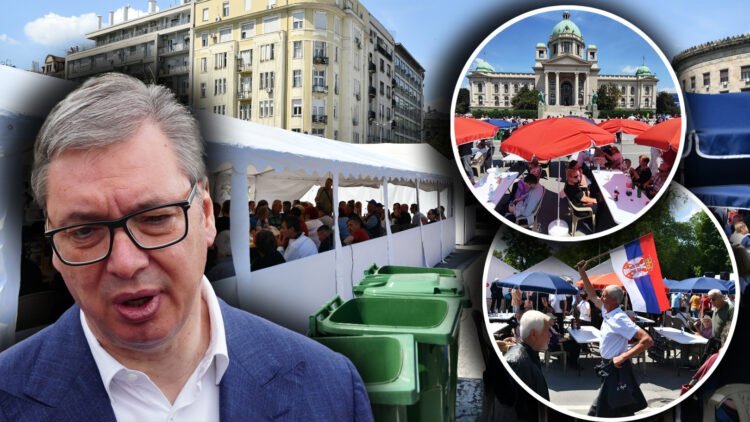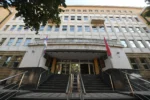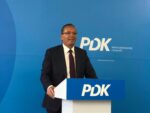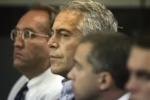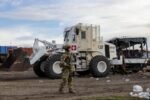Serbian President Aleksandar Vučić suggested today that he will personally launch an initiative regarding the tents in central Belgrade—an announcement widely interpreted as a signal that the protest site known as “Ćacilend” may soon be removed.
Speaking from the Presidency, Vučić stated that he expects the situation on the streets to “normalize,” despite providing no concrete explanation of what his initiative entails. The ambiguity has raised concerns that the government is preparing another politically motivated crackdown on public gatherings, continuing a pattern of suppressing dissent.
Ambiguous Threats Wrapped as “Normalization”
Vučić declared:
“Soon I will have an initiative regarding the tents and everything else… I believe we will normalize the situation on the streets soon.”
Although framed as a matter of public order, the message clearly alluded to the removal of “Ćacilend,” the tent camp formed by protesters. Critics emphasize that such rhetoric is a strategic attempt by Vučić to delegitimize protest movements, painting them as failed “revolutions.”
Double Standards Toward Protest Camps
Despite hinting at action against the camp, Vučić contradicted himself by claiming that the tents “bother no one.” He launched an aggressive attack on independent media outlets N1 and Nova S, accusing them of hypocrisy.
According to Vučić:
“How come one tent camp bothers you, but the other doesn’t? The ones in Ćacilend are prettier… they can’t be seen.”
Observers argue this is yet another example of Vučić’s manipulative communication strategy, in which he attempts to redirect criticism by attacking the media and diminishing the legitimacy of protesters.
Violence Downplayed, Criticism Redirected
Vučić even referenced a shooting incident at one of the tents in an attempt to discredit the protest movement. Instead of addressing the climate of political tension or violence, he used the event to again attack journalists—an approach widely criticized by human rights organizations.
Context: Severe Economic and Political Pressure
During the same address, Vučić also discussed Serbia’s oil industry, warning that the Naftna Industrija Srbije (NIS) refinery could face partial shutdown within days unless the United States grants a license extension. His remarks confirmed that Serbia has placed itself on the brink of U.S. sanctions, prioritizing political alignment with Russia over economic stability.
This dual messaging—threatening protest camps while announcing major economic risks—highlights the deepening political crisis under Vučić’s administration.

